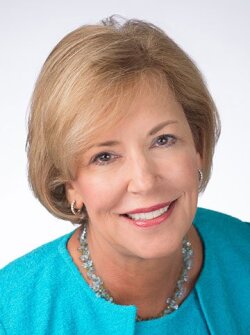
|
| Stephanie Hirsh |
As more practitioners and researchers recognize the importance of addressing students’ social and emotional learning (SEL) in schools, we can’t leave to chance the professional learning needed to make these efforts effective. Far too often, the professional learning linked to essential emerging topics is a distant afterthought in many educators’ contexts. We should also recognize that social and emotional competencies are embedded in the principles of high-quality professional learning.
Let’s first examine Learning Forward’s Standards for Professional Learning to uncover how SEL aligns with what we know about effective professional learning.
The introduction to the standards describes four prerequisites for professional learning, the first of which is educators’ commitment to all students: “Committed educators understand that they must engage in continuous improvement to know enough and be skilled enough to meet the learning needs of all students. As professionals, they seek to deepen their knowledge and expand their portfolio of skills and practices, always striving to increase each student’s performance” (Learning Forward, 2011, p.15).
The obligation to address the needs of all students is not negotiable, and all students are individuals. “Learning needs” of students are broadly conceived in the standards, and research shows that social and emotional development shape readiness to focus, engage, and process content. As we state in the stem of each standard, “results refers to all aspects of student growth and development. Academic success is the primary results area [but] ... Academic, social, and emotional development work together to ensure student success” (Learning Forward, 2011, p. 21).
Three requests
To support your colleagues and teams in implementing SEL with high-quality professional learning, look to these first steps:
Address SEL within a coherent learning plan: Educators will benefit from deepening their understanding of SEL in the context of implementing rigorous content as well as serving students from a range of cultures and backgrounds. Fully integrating SEL professional learning may mean, for example, that collaborative teacher teams include aspects of SEL in learning cycles through data analysis, goal setting, and setting the adult learning agenda.
Engage adults in SEL: Just as we expect adults to have the opportunity to experience the rich shifts in learning associated with the implementation of college- and career-ready standards as they transform their teaching, so, too, will they deepen their understanding when they can participate in SEL experiences.
Use a continuous improvement cycle to set goals and monitor progress: Expecting results from professional learning isn’t optional. Schools and districts may need to collect or analyze additional sources of data to identify the most pressing needs. They may need new kinds of support to understand and put into context new data sources and set relevant goals. External expertise may be crucial for implementing a learning agenda. Expand your network to take in new sources of information as you support educators in building capacity.
Embracing SEL as a critical component of creating equitable learning environments for students isn’t exactly new for many educators. What has changed is the visibility of the topic, thanks in part to a multitude of studies, organizations, and strategies now available to support SEL. I invite you to stand with me and help shape effective professional learning coupled with SEL implementation.
Reference
Learning Forward. (2011). Standards for Professional Learning. Oxford, OH: Author.
This post is adapted from the August issue of The Learning Professional.